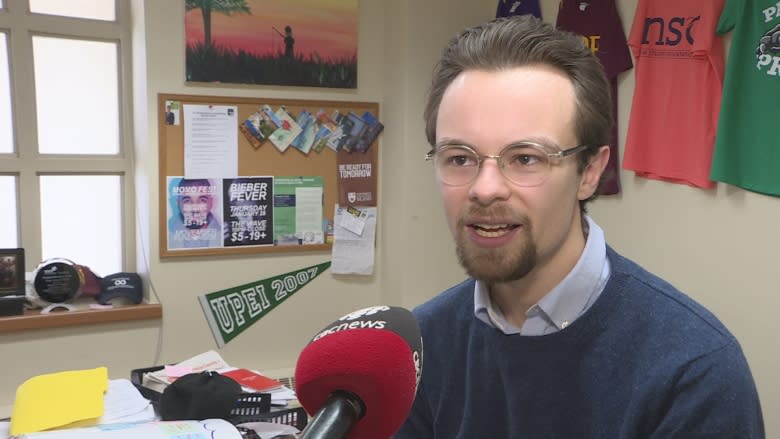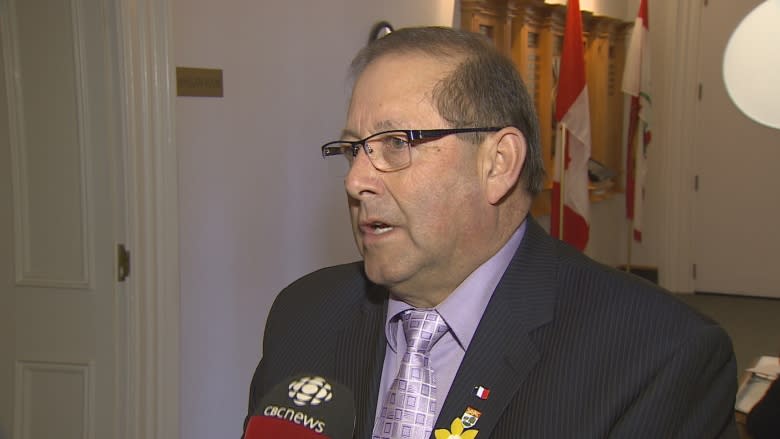Make tuition grant system 'needs based,' says UPEI Student Union
The UPEI Student Union says this province needs to do a better job helping low-income Islanders pay for college or university.
The student union's president Nathan Hood says to start, the P.E.I. government needs to rethink its George Coles Bursary program, which he says doesn't work effectively.
The bursary program offers financial help to every Island student attending a P.E.I. institution.
"So for me, for example, I've received money this year that I didn't need," said Hood.
"I've heard a story of a student taking out $2,000 they received in their final year to fund a trip down south. And, when I know there's students struggling to fund their education, that can be a little disheartening."
The provincial government spent $1.5 million last year, handing out 680 George Coles bursaries to Island students attending P.E.I. institutions.
Hood says the problem is that the amount students receive is based solely on the cost of their tuition, and not on family income.
He says the student union has had several meetings with government officials, pushing the province to adopt a "needs based grant system."
"Ontario and New Brunswick have been real trail blazers in that respect, and they've been applauded for their models," said Hood. "Basically, just take the aid that you're already paying out to students, provide more to people on the lower end of the spectrum, and then taper it off as you go up the ladder."
Government not planning changes
But P.E.I.'s Workforce and Advanced Learning Minister Sonny Gallant says there are no plans to change the province's grant system.
Gallant says his department has made other changes recently aimed at helping post-secondary students fund their education, including increasing the weekly maximum provincial student loan and allowing students to wait up to a year after graduation to start paying it back.
"Also, there's over $30 million in federal and provincial bursaries and grants available to post-secondary students," said Gallant. "We're always looking at ways to help post-secondary students get their education."
Low-income enrolment declining
But Hood says more grants need to be targeted directly at helping low-income Islanders afford a post-secondary education.
He points to new numbers from Statistics Canada, which show that while the overall percentage of Islanders attending college or university has increased since 2001, the percentage of low-income Islanders enrolled has actually decreased slightly.
"We know that if you do get a post-secondary education, it's going to improve the income you'll make as a citizen," said Hood. "So from an economic perspective, it would make sense for P.E.I. to follow [Ontario and New Brunswick]. They're fantastic for getting low-income students into post-secondary education."
Gallant says his department is open to having more meetings with UPEI's Student Union "to come up with better ways for youth to get their post-secondary education."
- MORE P.E.I. NEWS | Sentencing adjourned for P.E.I. man convicted of animal cruelty
- MORE P.E.I. NEWS | Seeking sisters: New convent planned for Summerside needs nuns




